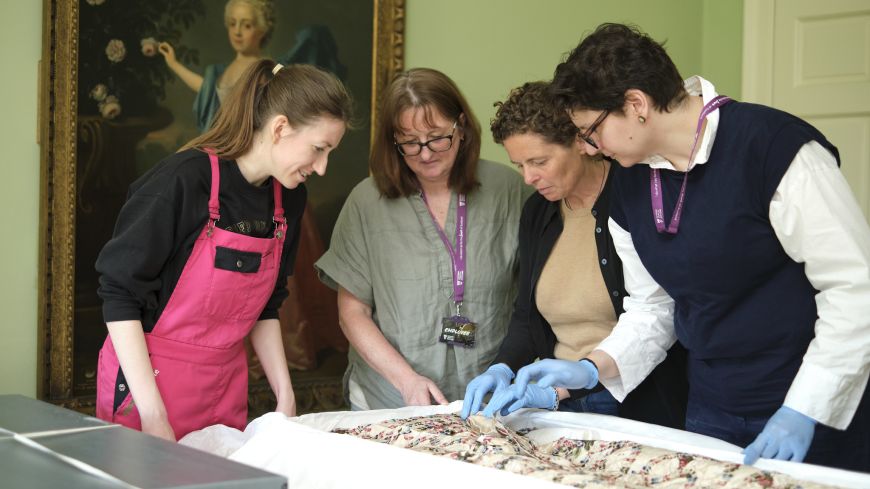
A new exhibition, opening today at the Georgian House, by renowned Edinburgh portrait artist Allan Ramsay, decodes fashion in the 1700s and the crucial role it played for Edinburgh's high society women during this period.
The National Trust for Scotland brings together its collection of female portraits by Allan Ramsay (1713–1784) for the first time, following a successful display of Sir Henry Raeburn's work last year.
Covering a 30-year period of Ramsay's career, the exhibition at the Georgian House in Charlotte Square illustrates his skill at capturing the clothing, accessories and popular trends of the time, while examining both the naturalistic style and imaginary elements found in his paintings.
Curator Dr Antonia Laurence Allen, a Regional Curator at the National Trust for Scotland, says the exhibition also highlights "how his career was forged in Edinburgh with the help of his father and a growing fashion for portraiture."
"The portraits in this exhibition reveal Ramsay's artistic skill and ability to capture real fashions with imaginary flourishes, in a way that epitomised the true likeness of his sitters while promoting their standing in Edinburgh society," adds Allen.
"By capturing popular styles of dress, Ramsay promoted a sitter's cultural sophistication and their progressive ideals of taste. This meant their portrait could help them confidently present a contemporary vision of themselves to their peers."
Sewing an 18th-Century Gown
The exhibition also features a rare 18th-century dress, from Newhailes House near Musselburgh.
During the first week of June, National Trust volunteers, led by dress historian Rebecca Olds, will be stitching a replica of a 1760s gown. The dress was modelled from a garment worn by Katherine Ann Mure, who was painted by Ramsay in 1769 and features in the exhibition.
"We hope this might inspire visitors to re-use and recycle their own wardrobe," says Allen.
This replica dress will be made in the drawing room at the Georgian House before going into the exhibition on 14 June. After the exhibition closes in late November, the dress will go to the Trust's 1766 draper's shop, recreated at Gladstone's Land on the Royal Mile.
Edinburgh Shopping... in 1742
The National Trust also commissioned research to map the trades dealing in textiles, clothing and accessories in Edinburgh.
"This has provided a rich picture of what it was like for a woman to leave her town home and engage with shopkeepers up and down the high street. We have plotted these locations on a 1742 map, collated adverts that detail how traders promoted their wares, and created a short film that imagines a lady's journey buying cloth and accessories," said Allen.
"Today's shoppers are concerned with sustainable fashion and will find in this exhibition similar themes that were central to consumers in the 18th century. While milliners and tailors were busy altering gowns and jackets, drapers and merchants sold cloth, ribbons and lace to upcycle old ensembles."
"As well as showing the content in the exhibition, we wanted to demonstrate how dresses were made to measure and designed to be altered as fashions and a woman's body changed. There was no ideal figure, but there was an ideal silhouette."
Talks about 1700s fashion
The Georgian House's Wednesday evening lecture series also returns this summer for Ramsay and Edinburgh Fashion. It includes a range of stories about fashion traders and retailers, silk dresses and linen undergarments, global and domestic trade routes, and the women and men of Enlightenment Edinburgh.
Ramsay and Edinburgh Fashion opens on 7 June at Georgian House in Edinburgh and runs until 24 November 2024. The exhibition is included in admission to the Georgian House, which is free for National Trust for Scotland members.

